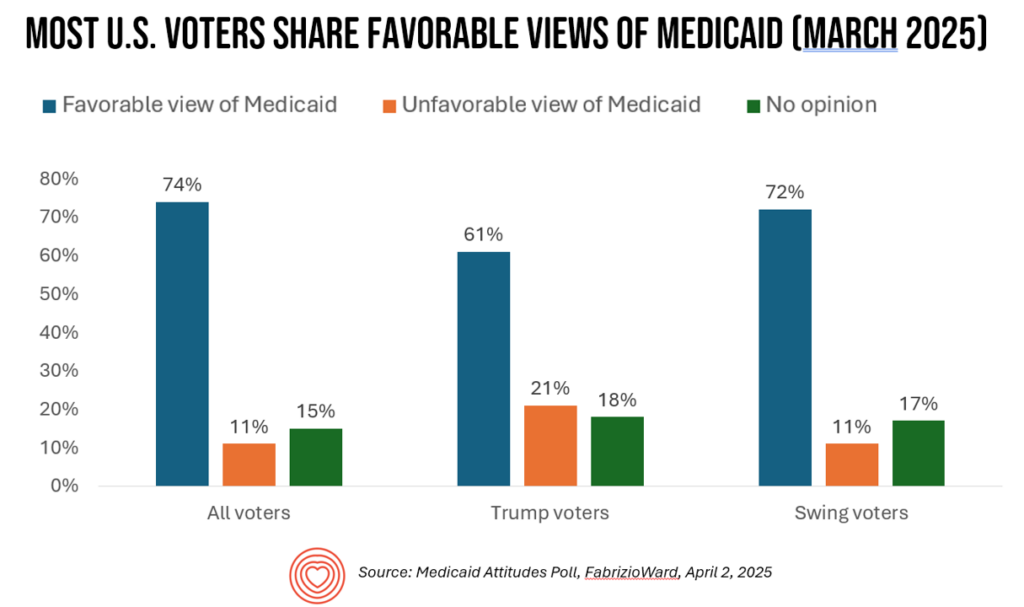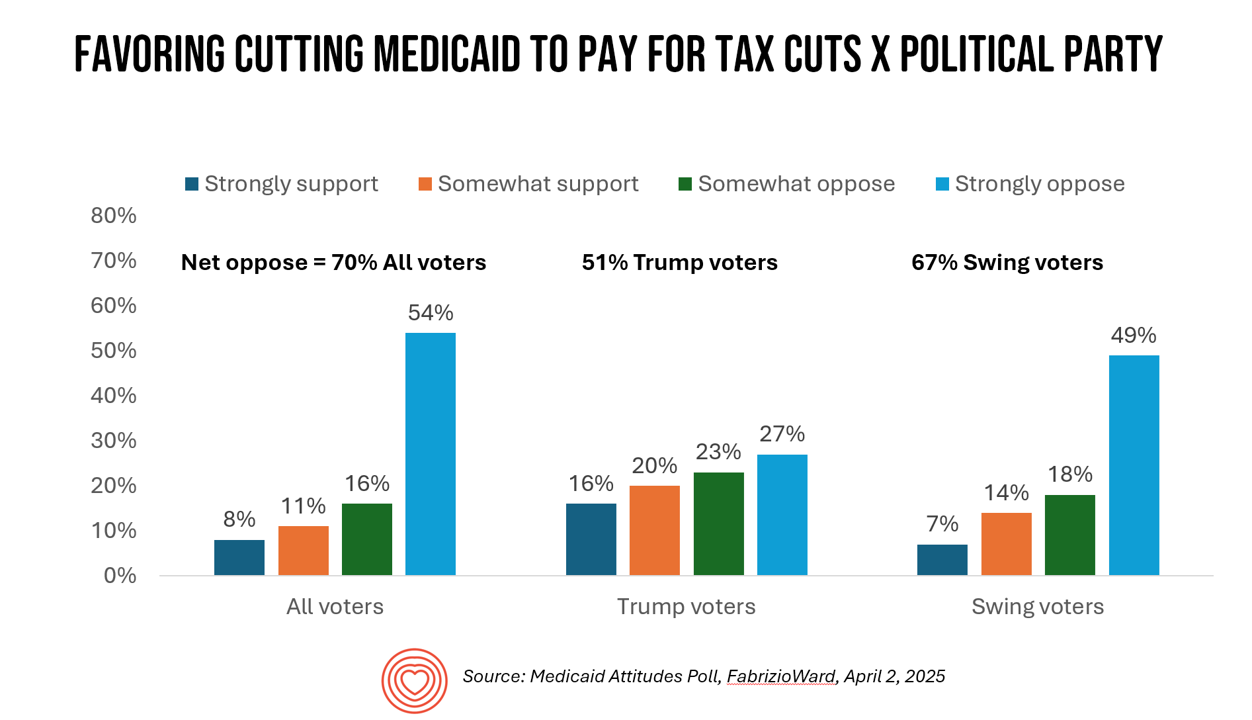With potential down-sizing of Medicaid on the short-term U.S. political horizon, a fascinating poll found that most people identifying as Republican would not favor cuts to Medicaid.
What fascinates me about this survey, published earlier this week, is that it was conducted by FabrizioWard, a polling firm that has often been used by President Trump. 
The firm’s Bob Ward told POLITICO that, “There’s really not a political appetite out there to go after Medicaid to pay for tax cuts. Medicaid has touched so many families that people have made up their minds about what they don’t want to see cut.”

In fact, most people who voted for President Trump have favorable views of Medicaid overall. That is, 61% of Trump voters compared with 74% of all voters and 72% of swing voters.
Only 1 in 5 Trump voters had unfavorable views of Medicaid.
Across this poll, swing voters’ perspectives on Medicaid look very similar to those of all voters (including Democrats).

Looking under the political microscope in terms of the various program elements that Medicaid covers, we also see that most people who voted for President Trump support preserving funding across at least the six areas FabrizioWard surveyed.
These including continuing to support children diagnosed with cancer, covering veterans enrolled in Medicaid, covering children with special health care needs, continuing to provide support for long-term care for Americans with disabilities, covering nursing home bills for those in long-term care covered by Medicaid, and covering the 7,2 million seniors enrolled in Medicaid,
The poll was conducted among 1,000 registered voters between March 20 and 24, 2025, online and via telephone.

Health Populi’s Hot Points: Over 90 health organizations “urged Congress to reject unprecedented cuts to Medicaid” this week in this letter.
Meet the national members of the Modern Medicaid Alliance, dozens of organizations making up a huge footprint of the U.S. health/care ecosystem.
Supporting Medicaid in this group are a diverse collection of stakeholders: start with AARP, which represents health citizens 50 years of age and up (and remember, we’re talking “Medicaid” here, not “Medicare). We see professional associations like the AAFP (family practitioners) and the APA (American Psychologists Association), AHIP (representing health insurance) and Kaiser Permanente; health care providers; and, patient/disease advocacy representing cancer, liver, spinal, OB/GYN, and mental health, among other conditions and concerns.
When FabrizioWard asked voters how they felt about the importance of health insurance coverage overall, once again most voters — all, Trump voters, and swing voters — said health insurance coverage was important.
By voter segment in this study, these results were,
- 92% of all voters saying health insurance coverage was important (very + somewhat)
- 87% of Trump voters (58% very important + 29% somewhat important)
- 92% of swing voters (77% very important, 15% somewhat important, identical to “all voters”).
With the House of Representatives poised to address tax cut legislation with a firm focus on funding the cuts through Medicaid’s multi-faceted programs covering Americans from the very young to the very old, the FabrizioWard should give legislators important information about health citizenship in America.
Two new reports to consider in the context of this post published this week:
- From The Commonwealth Fund, on the impact of medical bills, medical debt, and health care costs on Americans.
- Updated data on the maternal mortality crisis in the United States published in JAMA Network Open this week.





 Thanks to Feedspot for naming this blog, Health Populi, as a
Thanks to Feedspot for naming this blog, Health Populi, as a